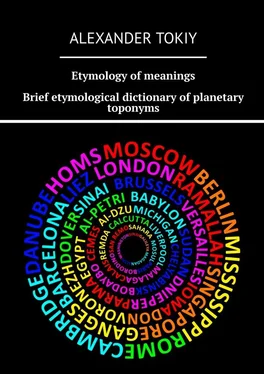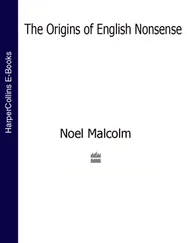Outside of our country, toponyms\place names with the protoroot “ms” are multiplying: in Europe we have the famous Meuse River, the Moselle River flows in the same place, and in England the Thames River flows too. In the Middle East, Lake Mosul is located in the course of the famous Tigris River. The same name is given to the downstream of the city of Mosul. Note that the names the Moselle and the Mosul (Musil’) have the same protoroot: “ms” is “water”, and the soft sound “el’” means “good”, “beloved”, “divine”.
I don’t believe in the coincidences—“divine water” doesn’t just appear. In Libya, there is an ancient city of Al Khoms (Hums). In Syria, there is a large Lake Khoms, on the Bank of which there is the city of the same name is located. And to the South – the Khoms desert, with drying rivers that flowed into the famous Palmyra. How can we explain the origin of these names? All of them have one common meaning—“the way to water”. If you and I wanted to offer the ancient people to go to the water body, how would we say it? There are protoroot “ga”, which designates the way, the movement; also we have our life-giving protoroot “ms”, indicating the water. We would say “ga-ms”, “kho-ms” or “ms-ga”—the way to a place where you can get drunk.
In addition to Lake Mosul and Lake Khoms in the Middle East, there is also the legendary city of Damascus. The name of the ancient capital of Syria contains the same protoroots: “ms” and “ka”, “way to water”. But there is an addition – the name includes the ancient preposition of the location “ta-to”: “ta (eto) -ms-ka”—“that is the way to water”. The city of Damascus is located on the Barada River, where it divides into seven branches: water has always been good in Damascus. If you step back a little and listen to the sound of the names of the Maskaga River and Damascus, then you heard the harmony of the ancient language spoken by our ancestors. According to the same logic, the name of the river “Thames” was formed—“to-ms”—literally: “a place where water is.” I assume that our great rivers Om’ and Tom’ in their names used to have the sound “s”, which was lost later.
Many names with the protoroot “ms” are found in Japan. These are the Mitsuysi, the Misava, and the Matsura rivers. In Japanese, the word “water “sounds like “mizi”, and “water body” is “mizimi”. Our protoroot also lives in America in the names of water bodies and great rivers: the Mississippi and the Missouri. On Lake Ontario is the city of Mississoga, which received its name from the native American tribe of the same name. But how did the Indians become “Mississoga’s”? And what is “so-ga”? The answer is clear…
You can remember the names of other tribes: the Mosquitos, the Muiscas, the Mixtecos, the Tsimshians and others. With all the diversity, these tribes were somehow “tied” to water, to water objects. Listen: the most famous Lake Michigan with its glorious city of Chicago sounds like “ms-mch” (water) and “ga” (way). The ancient preposition “na” (on) in this case can be interpreted in different ways: “on top”, “to be”, “presence” of water, or even its “edibility”, that is, its suitability for drinking. In Russia, this name and its origin are consonant with, for example, the Mshega River. From this group of names, you can remember the Muchka River, which flows in the city of Trabzon, and the same river in the Murmansk region. The basis is still the same: “mch-ga”—the way to water, or “the way of water”. There is also an interesting Russian toponym\place name the city of Mozhga, which can be translated as “water on the road” or simply – a puddle.
Of course, the protoroot of “ms” has changed and evolved. Over time, the “m” sound was lost in some languages, but it seemed to transmit its “memory of water” to whistling and hissing consonants, which gave rise to a lot of meanings. This was the case in the Turkic languages, where the sound “s” formed the word “su” with the meaning “water”. Do I have to list water bodies that formed the ancient protoroot “su”? There are thousands of them. They are scattered all over the planet. At least one place name can be remembered. Where does the Nile, the main river of the ancient world, originate? In the country of Sudan, whose name is assembled from the protoroots “su” (water) and “dono” (depth)—an inexhaustible water source…
Another word that deserves close attention is Mesopotamia. This toponym\place names well shows how complex words appeared from simple roots. Mesopotamia (Μεσοποταμία) is a Greek word, and it is interesting because it has two protoroots “ms” at once.
The first—“meso” (μέσος)—has the meaning “average”, “middle”. The origin of the meaning is understandable: any body of water, and especially a river, always divides something: the left Bank, the right Bank… The river seems to be “mezhdu” (between). From this understanding came the meaning of the word “mezha” (boundary-line). And the chain of related values can be extended to the present: “mezha”, “meso” (meso, mezzo), the case form “midas” (median, medium and others).
But the second part of the word—“potamos” (ποταμός)—is translated both as “place” and as “river”. In addition protoroot “ms” in the word there are also two ancient protoroots (prepositions): “po"and” ta” are sounds of “puffing” and “poking”. These sounds (prepositions) speak about the place, about the location. Mesopotamia is a place between rivers. These prepositions with different vowels you will find in the names of a huge number of toponyms\place names: the Te-mza River (the Thames), the Te-rek River, the Ti-br River, the Ti-gr River, the city of To-t`ma, the To-bol River, the Po River, the Pola River, the Po-lonka River, the city of Po-ltava, the city of Po-lessk, the city of Po-lotsk, the Po-gara River, the city of Po-dolsk, the city of Bo-lonya, the city of Ba-at, the city of Pa-rizh (Paris), the city of Pa-rma, Lake Ba-aikal, the city of Bo-lkhov, the city of Bu-gulma, the city of Bo-dai-bo, and thousands of others. The same sounds form the Greek word “toponym” (τοπωνύμιο), where “topos”(τόπος) is “place”, and “onoma” (ὄνομα) is “name”. The name of the place! And Russian word “place”– “ms-to”—should be read as a place near water (spring, stream, river, lake). If we add the ancient preposition “po”—“around, along”, we get the word “pomest`e” (estate, possession).
We are dealing with very ancient sounds. Near the city of Washington, for example, the Potomac River flows, whose name is made up of the same ancient prepositions “po” and “to”. Translated from the Algic languages Potomac is a “place”, later: a trading place. People often enough met and traded by the water. I might add that the city of Washington is also located between the Potomac and Anacostia rivers. It is American Mesopotamia or Entre Rios!
I don’t know what impression the native American name Potomac made on the first Spaniards, but I think Columbus’s contemporaries heard quite familiar sounds. In the English version, the sound of the ending “k” is spelled with the Latin letter “c”. Who first recorded it in this version is a mystery. But if you read the letters, that the Potomac should sound “the Potomas”. I’m sure that’s the name of this river should sound like it! The root basis in toponyms\place names is very stable, so no matter how the vowels change, the consonants carry the main meaning. However, as soon as the root becomes auxiliary, service, becomes an affixed morpheme, it loses this stability. Thus, in the word “potamos” (ποταμός) the root “ms” is preserved, and in the toponym/place name “Mesopotamia” the sound “s” at the end of the word is lost. The same distortions have occurred for thousands of years with the names of the rivers Tom’ and Om’.
Читать дальше












